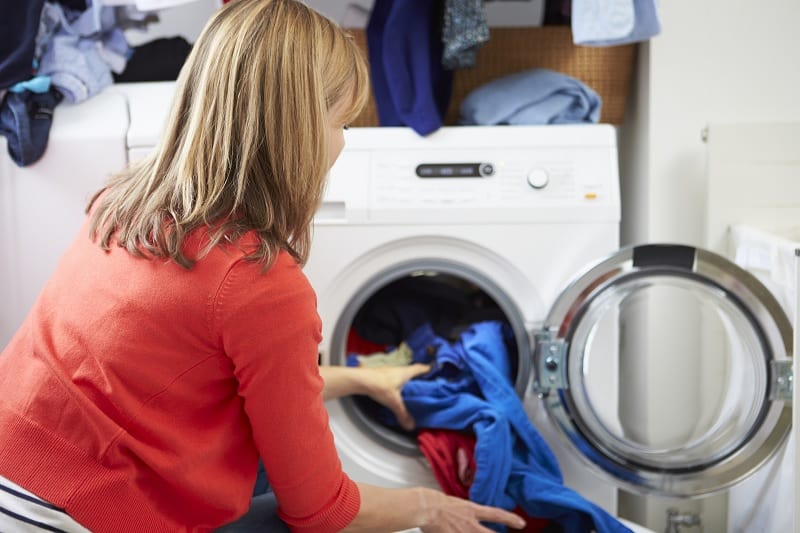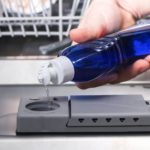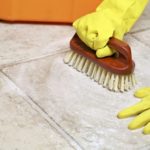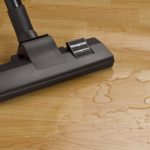There are a lot of washing machine cleaner products on the market from brands such as Dr. Beckmann, Dettol and Calgon.
But do these washing machine cleaners actually work?
The short answer to this question is that yes, washing machine cleaners do work. However, not all washing machine cleaners work all the time. It’s quite common to use a product and not notice much of a difference.
What Do Washing Machine Cleaners Do?
Some washing machine cleaners focus exclusively on removing limescale and laundry detergent build-up, whereas others combine this with the ability to kill bacteria.
If your washing machine smells bad or you’re worried about bacteria growth, it could be a good idea to use an antibacterial washing machine cleaner product.
Using an antibacterial cleaner every three months or so can help prevent your washing machine from getting smelly.
Many washing machine cleaner products are scented, and will leave your washing machine with a fresh citrus scent after cleaning.
However, bear in mind that these products are quite harsh and could be a bad idea for those with asthma or sensitive skin. They’re also not environmentally friendly.
Washing machine cleaners also remove the limescale that can build up in your washing machine, particularly if you live in a hard water area. They can also help with removing a build-up of laundry detergent.
Some washing machine cleaner products such as Ecozone Washing Machine & Dishwasher Cleaner Tablets can also be used on dishwashers.
Most washing machine cleaners are designed to be used on an empty cycle rather than together with your laundry. However, you can also buy products like Calgon 4-in-1 Water Softener Tablets that you use along with your regular detergent. They are designed to prevent limescale build-up.
How Washing Machine Cleaners Work
Washing machine cleaning products work using antimicrobial ingredients and surfactants. They often contain several of the following ingredients:
- Non-ionic surfactants – These ingredients create a foam and help remove grease and grime. Surfactants reduce the surface tension between two materials, allowing grime to be washed away.
- Didecyldimethylammonium chloride (DDAC) – This is an is an antiseptic/disinfectant.
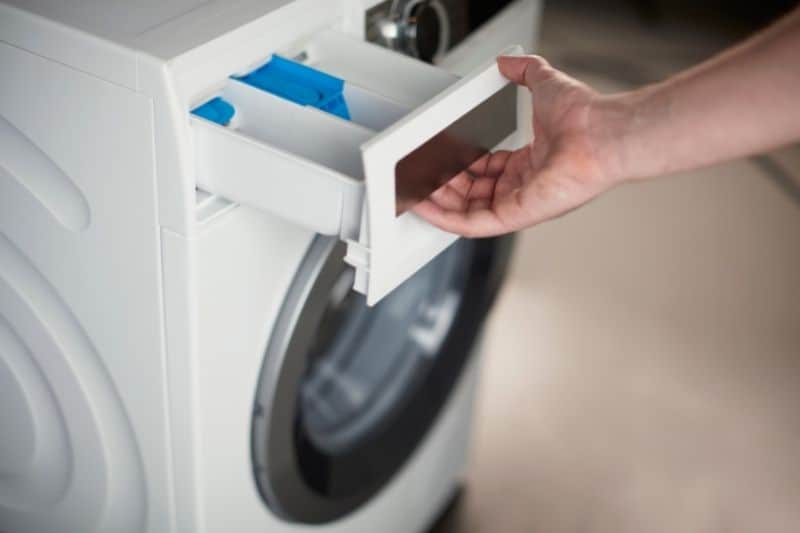
How to Use Washing Machine Cleaner
The method for using a washing machine cleaner will vary depending on the specific product you choose. Some products are designed to be used along with a regular detergent and a load of washing, while others are designed to be used on their own on an empty cycle.
For most liquid washing machine cleaners designed to be used on their own, the method will be something like this:
- Pour the liquid cleaner into the detergent part of the washing machine drawer
- Run a hot wash (60°C or above) with no clothes in the drum. If your washing machine has a special maintenance or self-clean cycle, use this.
What to Do If a Washing Machine Cleaner Doesn’t Work
If your washing machine cleaner product doesn’t work, you can try using different products until you find one that does work.
If there is visible black mould in your washing machine, you should remove it manually (using gloves), as you need friction to remove it. Mould often accumulates around the seal, and simply using a washing machine cleaner isn’t enough to remove it.
What Do Users Say About Washing Machine Cleaners?
Most users find that washing machine cleaners make a noticeable difference, and quickly improve the smell of their washing machine.
Some people consider these products to be expensive, but many people find they get good results by only using them once a month or so.
DIY Washing Machine Cleaners
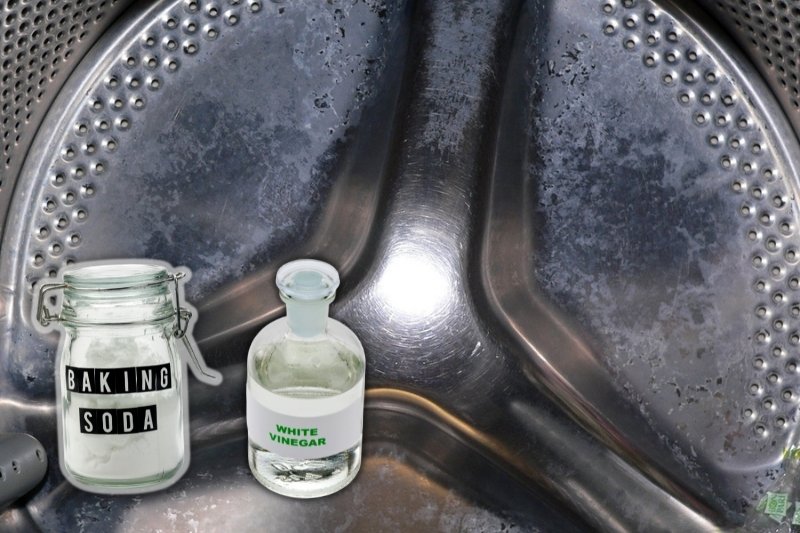
You can make a cheap and effective DIY cleaner using products in your kitchen cupboards.
You can make a homemade washing machine cleaner using bicarbonate of sodar and white vinegar.
Here’s a method for cleaning your washing machine cheaply and without using harsh chemical products:
- Sprinkle 2 cups of bicarbonate of soda in your washing machine
- Run the washing machine on the hottest and longest cycle
- Pour 2 cups of white vinegar (and optionally 5-10 drops of essential oil) into the washing machine
- Run the washing machine on the hottest and longest cycle
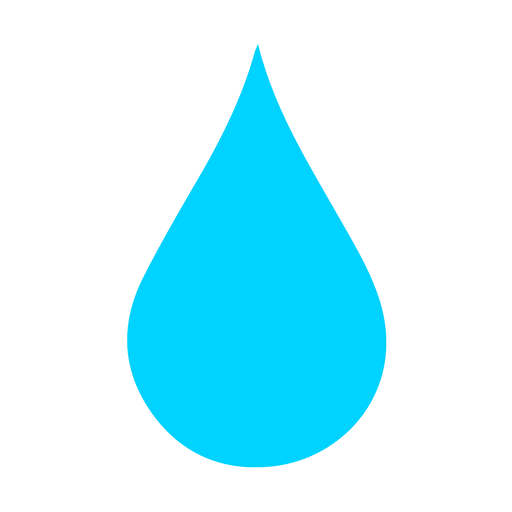
In The Wash is your guide to the best laundry and cleaning products, tips and tricks. Our mission is to solve the UK’s cleaning and laundry dilemmas!
